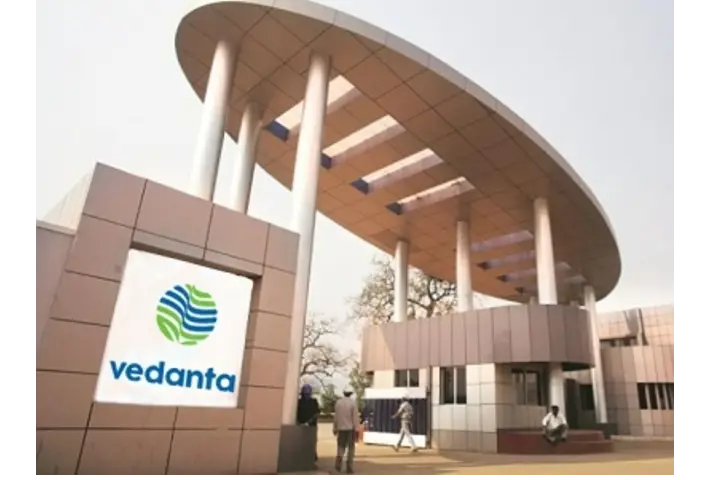

Anil Agarwal led Vedanta all set to spread wings in Africa (Image courtesy: IANS)
Along with critical minerals, demand for copper is rising rapidly in India with its aim to attain net-zero carbon emission by 2070. Vedanta Resources Chairman Anil Agarwal’s announcement on social media X that the company, is now looking to resume copper production in Zambia after regaining ownership and management control of Konkola Copper Mines (KCM) could just be a prelude to a further expansion of the Indian firm’s footprints in the country and the continent.
“We have other big projects coming up in the copper blocks that we have won in auctions and smelters in international geographies,” Agarwal said on X.
Agarwal also said that his company will look at creating a fully integrated copper vertical and eventually—“a successful global copper company, like Chile’s Codelco and Mexico’s Southern Copper.”
In 2019, Vedanta was caught in a controversy following former Zambian President’s Edgar Lungu’s allegations of dishonesty leading to after a series of legal hurdles. KCM was then placed under provisional liquidation. However recently, the four-year old legal matter has been finally put to rest under President Hakainde Hichilema, Lungu’s successor.
The resolution is not only a victory for Agarwal but will help in boosting the Zambian economy. Vedanta has made a commitment to invest $1 billion in five years into the project.
An analyst said that the episode will encourage other Indian firms as well to look at Africa more favourably.
The International Copper Association India (ICA India) reported that India’s copper demand is back on the growth track in 2021-22, registering a year-over-year (YoY) growth of about 27.5 per cent. The demand for red metal stood at 12.5 lakh tonnes in the previous year, as compared to 9.78 lakh tonnes in FY21.
While the chunk of India’s investments in Africa is largely confined to countries like Egypt, Mauritius, Mozambique, Sudan and South Africa, New Delhi, looking to tap natural and critical mineral resources may start expanding to other areas as well. Resource rich nations including Central African Republic, Democratic Republic of the Congo, Ghana, Nigeria and Chad among others offer great potential. These countries have rich natural resources including critical and rare earth minerals.
The analyst also told India Narrative that with the inclusion of the 55-member African Union in the G20 frame under India’s presidency of the intergovernmental group, will help New Delhi attain a larger role in the continent, with which it already has long civilisational ties.
Africa’s Free Trade Agreement
The African Continental Free Trade Area (AfCFTA) – the mega trade pact could give a further push to intra-continental investments. Touted as one of the biggest trade deals in the world, the AfCTA aims to create a single market comprising 1.3 billion people with a combined GDP of about $3.4 trillion.
India must now proactively make a strong pitch to be able to get access to the member countries for expansion of bilateral trade at a time when New Delhi is looking for reliable sources for critical minerals and rare earth elements, he noted.
According to the Observer Research Foundation, given the opportunities that the AfCFTA is likely to create for India, there is an inherent need for the country to accord priority to the trade pact in New Delhi’s foreign policy map.
“India has increased its economic activities in Africa, its investments have risen significantly in the last few years but now New Delhi must work out a mechanism with the AfCFTA to be able to expand bilateral trade further,” Pradeep S Mehta, Secretary General, CUTS International said.
Mehta pointed out that India has traditionally remained politically aligned with the African countries, and the soft power that this has generated can help forge a new human-centric and people oriented economic relationship with the continent.
“Africa is looking at India to increase investments which will help the continent in economic areas but along with that there is a need for New Delhi to also invest in social sectors such as health and education. We are hopeful that these areas will be the focus as well for India,” an entrepreneur of Indian origin living in Kenya told India Narrative.
Also read: Why inclusion of resource-rich African Union in G20 frame can drive global growth
Israel Defence Forces Spokesperson Brigadier General Effie Defrin on Thursday said that Iran has expressed…
India's Hindustan Aeronautics Limited (HAL) and French engine manufacturer, Safran Aircraft Engines, signed an agreement…
India has emerged as a country with the third-largest growth in power generation capacity globally…
Prime Minister Narendra Modi hailed Indian chess grandmaster Divya Deshmukh for defeating world number one…
The family of detained Baloch leader Mahrang Baloch has accused prison authorities at Quetta's Hudda…
The QS World University 2026 Rankings bring great news for our education sector, as the…